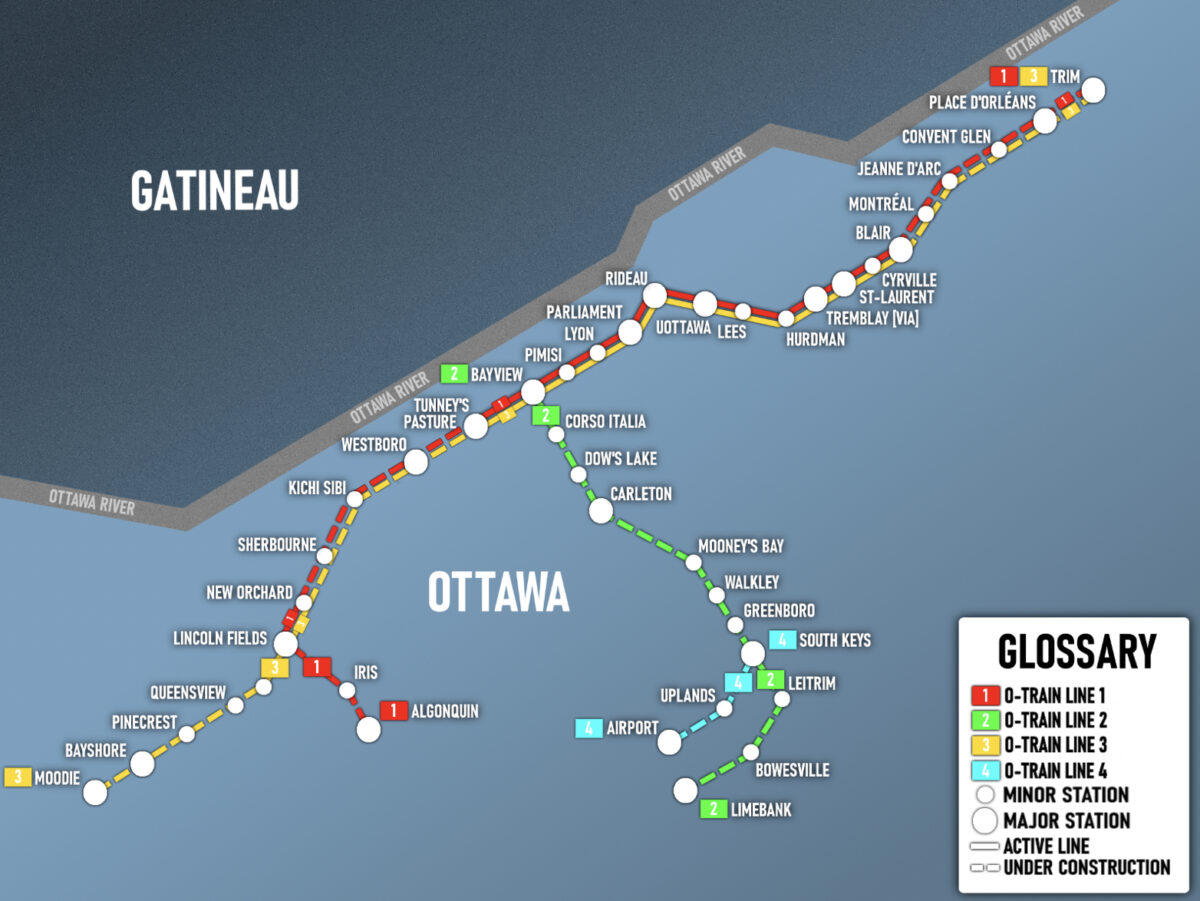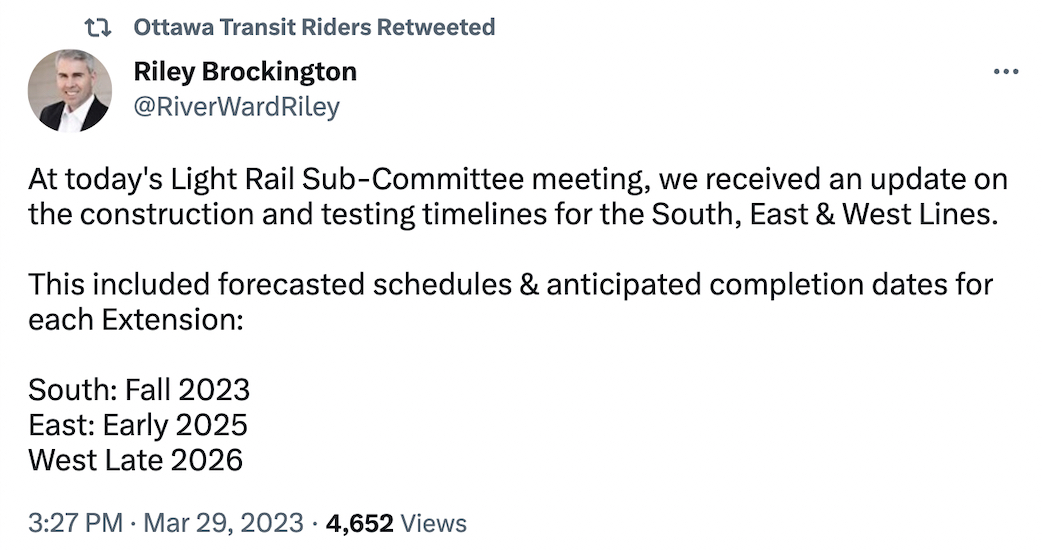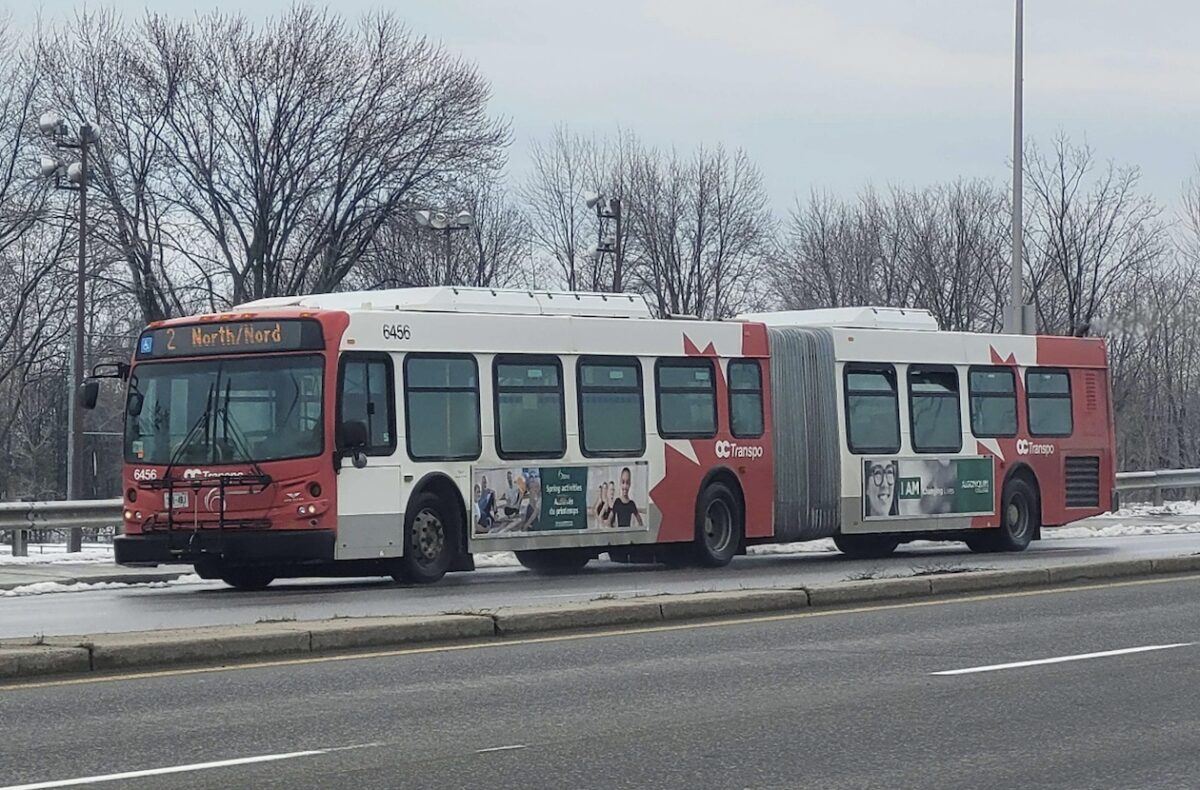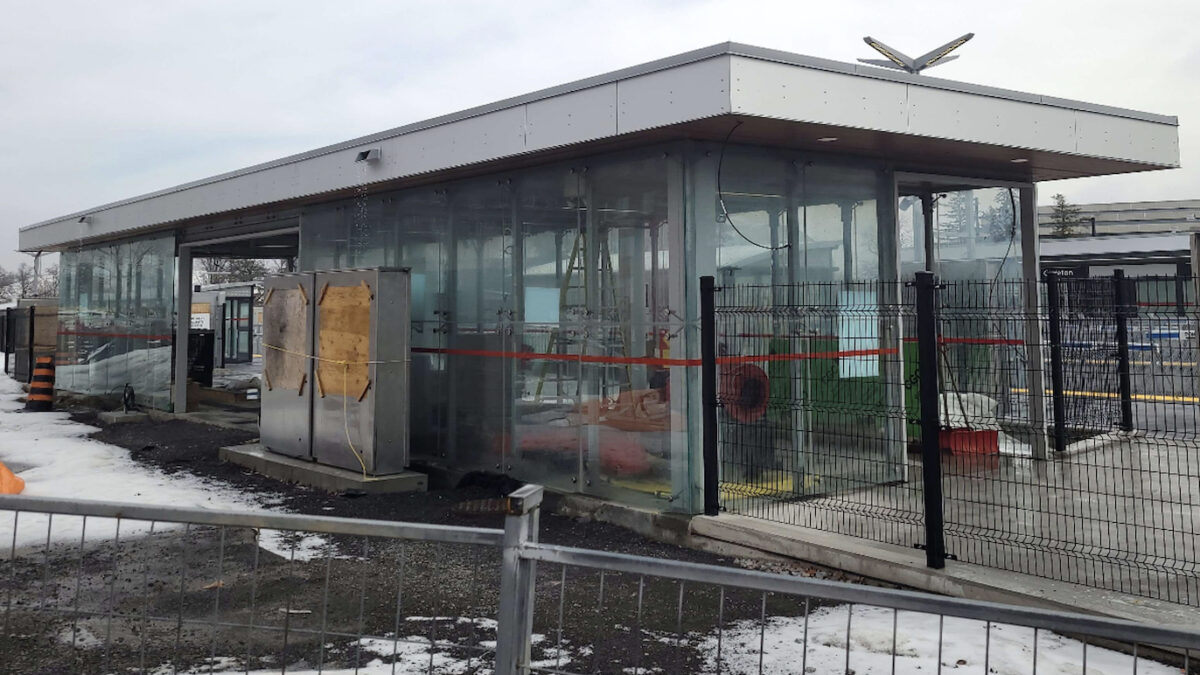As service disruptions have recently intensified transit frustration in Ottawa, the city added fuel to the fire announcing another delay in the completion of work on the Trillium Line.
A top transportation official told a city committee recently that the O-Train’s north south line, which runs past Carleton University, will not be ready for passengers until October 2023.
This came as a surprise to some at the meeting, who thought the project was further along than expected.
When the train proposal was first spelled out many felt it meant that Ottawa, one of the fastest growing cities in Canada, would graduate to big-city status.

But as Carleton University journalism professor and magazine writer Brett Popplewell puts it in a recent article in The Walrus — headlined “Ottawa’s Transit Gongshow” — dreams of a state-of-the-art transit system have turned into a nightmare.
“The city is more than 11 years into a $6.7-billion civic calamity once promised as a ‘world-class transit system’ but which — with the help of two train derailments, one monster sinkhole, countless engineering failures and general bureaucratic ineptitude — has become a local disgrace and a national joke,” Popplewell wrote in the scathing piece.
And it appears the Trillium Line delay is one more example of the troubles plaguing the system.
Some history: The Trillium Line extension was approved in March 2019 and the line was shut down for construction in May 2020.
The line will include several stations along the original, repurposed VIA rail line in the south end of the city. The extension will run from Greenboro station to Limebank and a new, adjacent spur line will connect the main Trillium route to Ottawa International Airport.
This is expected to provide efficient transportation for air travelers arriving to or departing from Ottawa.

With an expected two-year deadline and a bus route that would replace the north-south rail route during construction, there wasn’t too much backlash to the planned shutdown to complete the expansion project, much like the original announcement of the Confederation Line years earlier.
But since then, the Trillium Line project has veered off-course, and the original August 2022 deadline for completion has now been pushed back by more than a year.
Students at Carleton University face the frustration of yet another start to a school year without reliable transportation to the campus.
The No. 2 bus route that was put in place as a temporary replacement for Trillium Line service during the extension project has not proven reliable. According to recent data published by Capital Current, the No. 2 is only on time 78 per cent of the time.
If the Trillium Line is completed by the October 2023 deadline, the project would have been delayed by more than 14 months.
The latest delay was revealed in a presentation to the LRT sub-committee on March 29 by Michael Morgan, the City of Ottawa’s director of rail construction. He added that in order for the city to achieve the October 2023 target for restored passenger service on the Trillium Line, construction would need to be finished by Aug. 1 to allow time to run end-to-end safety and reliability tests.

“If they can’t achieve that Aug. 1 date, then we’re going to start seeing delays day-by-day,” he said.
Meanwhile, for the Confederation Line’s eastbound extension to Trim Road, the city is projecting a Jan. 2025 completion. For the westbound line to Moodie and Algonquin, the city is targeting a late 2026 completion.
As of late March, testing along the eastward extension is expected to start this fall, with all five new stations built by the end of the year. That line is just 51 days behind its original planned schedule, a near two-week improvement from the previous quarterly update.
Construction delays for the western extension to Moodie are especially problematic for the more than 9,000 members of the Department of National Defence who travel daily to the west end of the city to work at DND headquarters at the former Nortel high-tech complex.
The DND headquarters may have all the bells and whistles, but it lacks the parking space for most of its employees – having only 6,300 parking spaces. That has added pressure on the city to complete the LRT’s westward expansion, which is now 17 months behind schedule.
‘For decades, city council and transit management have neglected and underfunded our bus service, prioritizing the needs of 9-5 commuters coming into the core. Even here it opted for the cheapest possible system in the LRT, virtually ensuring it would be an unreliable and unappealing option.’
— Excerpt from joint letter issued in April by four Ottawa transit advocacy groups
The delays follow bad news that $39 million worth of transit-related funding that the city had hoped would be funded externally has not materialized. With no additional federal funding and only a $7.48 million dollar payment from the province for lost revenues during the pandemic, the city will have to keep trying to secure additional funding.
The City of Ottawa’s long-term transportation and environmental policies depend on encouraging as many local residents as possible to take buses and trains. But passenger totals for public transit haven’t yet bounced back to their pre-pandemic numbers.
Resulting service reductions — in addition to postponements on the construction projects meant to improve the city’s public transit network — have fueled concerns about a “spiralling” decline in transit use and service in the capital.
In mid-April, a coalition of local advocacy groups urged the city to transfer funds for road widening to improve the transit system.
“City council must step up and do what it should have done in the first place: fund transit like the critical public service it is,” stated the signatories of the letter, including representatives of Ottawa Transit Riders, Ecology Ottawa, Horizon Ottawa and Free Transit Ottawa.
“For decades, city council and transit management have neglected and underfunded our bus service, prioritizing the needs of 9-5 commuters coming into the core. Even here it opted for the cheapest possible system in the LRT, virtually ensuring it would be an unreliable and unappealing option,” the groups stated. “Anyone who drives is a potential transit user if the service meets their needs, and given the climate crisis and high cost of living, failing to provide a convenient, affordable, low carbon alternative to the car is a glaring abdication of responsibility.”




